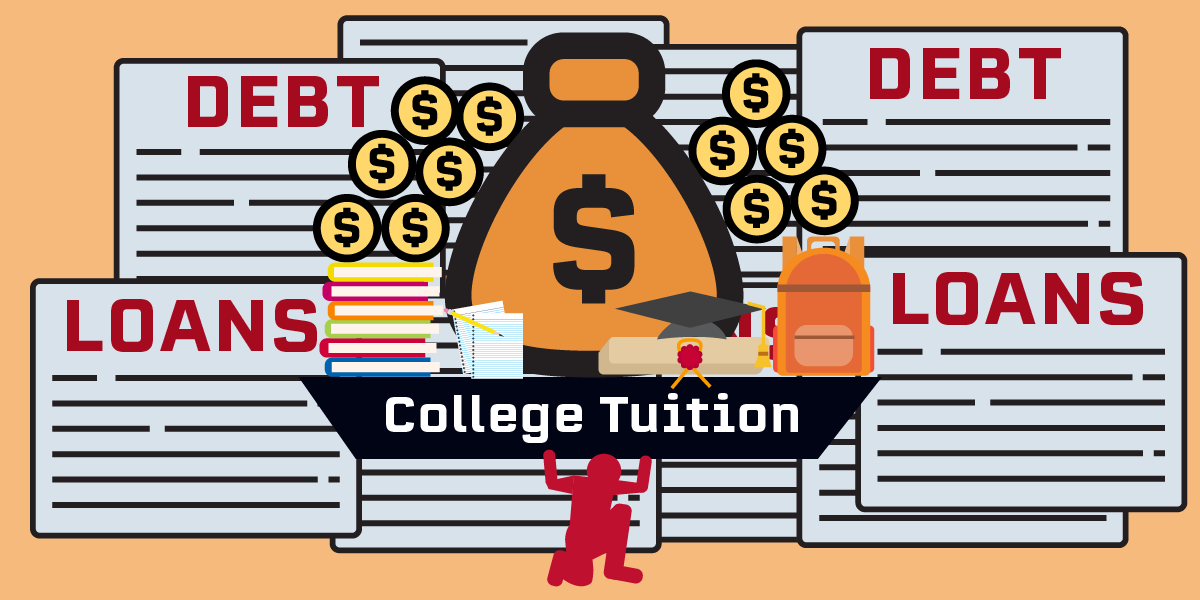Rising college tuition and student loans are causing financial problems and economic risks. It’s a growing crisis that we must address for the sake of individuals, communities, and our economy as a whole.
The government has a key role to play. It should regulate colleges to ensure tuition hikes are justified by improvements in education quality. And crucially, it must take action to decrease student loan interest rates to alleviate the burden on students. This is especially important given that total student loan debt now exceeds $1.7 trillion, according to the Federal Reserve.
Decreasing student loan interest rates can alleviate this burden by reducing the overall amount that students have to repay over time. Lower interest rates not only make it easier for students to manage their debt but also encourage more individuals to pursue higher education without fear of being overwhelmed by debt after graduation.
Additionally, lower interest rates can stimulate economic growth by enabling graduates to invest in other areas such as buying a home, starting a business, or saving for retirement, thereby contributing to overall prosperity. A study by the National Association of Realtors found that student loan debt is a significant barrier to homeownership for many young adults.
But students can’t just wait for the government to act. They need to be their own advocates. Students should participate in student organizations or advocacy groups dedicated to issues related to higher education affordability and student debt. By working together, these organizations can raise awareness about financial challenges and advocate for policy changes at the organizational and government levels.
Students should also engage with their representatives, work with government or student representative bodies to ensure student voices are heard in the decision-making process, and join or support campaigns and initiatives aimed at reforming student loan policies, reducing tuition costs, and increasing funding for higher education.
By actively engaging in these strategies, students can play a vital role in advocating for policies and practices that promote affordable education and equitable access to higher education opportunities for all.
Beyond government and student action, nonprofits also have an important part to play. They can provide relief for students who are carrying high levels of debt. Organizations like the Student Debt Crisis Center offer resources and support for borrowers struggling with student loan debt.
There are several key reasons why we must take action now:
First, raising college tuition without improving the quality of education burdens students with excessive debt. Second, high student loan interest rates exacerbate financial pressure and hinder economic growth. Third, government intervention and support for students is necessary to ensure equitable access to education and reduce student debt.
Students must act now to address the rising cost of higher education and the student debt crisis. By supporting fair policies, supporting student initiatives, and demanding government intervention, we can create a brighter future for students and the entire community.
Let’s work together to make education accessible and affordable for all.

